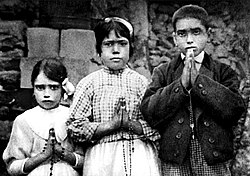User:Protractedresearcher/Mário Pais de Oliveira
Mário Pais de Oliveira | |
|---|---|
| Born | Mário Pais de Oliveira March 8, 1937 |
| Died | 24 February 2022 (aged 84) Penafiel, Portugal |
| Nationality | Portuguese |
| Occupation(s) | Priest, journalist, writer |
| Church | Catholic Church |
| Diocese | Diocese of Porto |
| Orders | |
| Ordination | 5 August 1962 by D. Florentino de Andrade e Silva |
| Rank | Presbyter |
| Military career | |
| Allegiance | |
| Service/ | |
| Rank | Ensign chaplain (expelled) |
| Battles/wars | Portuguese Colonial War |
Mário Pais de Oliveira, also known as Padre Mário de Oliveira, and, more colloquially, Padre Mário da Lixa (Lourosa, Santa Maria da Feira, March 8, 1937) was a Portuguese presbyter, journalist, philosopher and writer, originally ordained Christian but lately an adherent of Jesuism. One of the most controversial figures from the Portuguese Catholic Church, Mário de Oliveira was a fervent critic of Christian theology, Christian ecclesiastical system, several popes (namely Pope John Paul II and Pope Francis) and for disclosing the Marian apparitions of Fatima as a hoax.
Padre Mário da Lixa (known by this name for having been a vicar at Macieira da Lixa, Felgueiras) first gained notoriety before the Carnation Revolution for his harsh criticism of the then-ongoing Portuguese colonial wars, causing two arrests at the hands of PIDE and subsequent trials plenary court.
Mário de Oliveira worked as a teacher of Religion and Moral at Liceu Normal D. Manuel II (later known as Liceu Rodrigues de Freitas) and was later sent as military chaplain to Portuguese Guinea during the Colonial War. Once there, he had first-hand accounts of the personal dramas of the Portuguese army's soldiers and the colonial occupation.
When he stood trial during Estado Novo, he initially had the support of large progressive sectors, but bishop D. António Ferreira Gomes eventually removed his parish position due to his unorthodox stances.
Mário de Oliveira's connections to the more progressive quadrants of the Catholic Church (as well as his overall ecumenical postures) led him to an ostracizing process, placing him at the margins of the institution. His religious and philosophical views are clearly aligned with Jesuism.
Besides priesthood, Mário de Oliveira always maintained a secular existence as a journalist, especially as director of the online newspaper "Fraternizar".
On April 1999, he published "Fátima Nunca Mais" ("Fátima Never Again"), reaching eight editions in 12 months. With that book, Mário de Oliveira tries to destroy the myth of the Marian apparitions of Fatima, presenting a set of proofs which refute their validity. He refers that the presence of Jacinta Marto, Francisco Marto e Lúcia de Jesus dos Santos on a reputed apparition of Our Lady of Fátima in 1917 ended up ruining the lives of all the three children. He also accuses the clergy of Ourém and the Catholic Church of having psychologically abused the three children, instilling them fears of Hell and suffering and implicitly leading them to commit acts of religious starvation and mortification as redeeming acts. Consequently, their fragile health played an important part on the death of Jacinta and Francisco of pneumonia following infections of the 1918 Spanish flu pandemic. He also accuses the clergy of abducting the survivor Lúcia and trapping her on a convent, eventually making her a cloistered nun.

Books on Mário de Oliveira[edit]
- Subversão ou Evangelho? (Peças do 1º julgamento no Plenário do Porto), Dr. José da Silva, Advogado
- Subversão ou Evangelho? - II parte (Peças do 1º julgamento no Plenário do Porto), Dr. José da Silva, Advogado
- O Segundo Julgamento do Padre Mário, Edição de um grupo de jornalistas
External links[edit]
- Dados Autobiográficos
- «Página pessoal do Padre Mário de Oliveira»
[[Category:Portuguese writers]] [[Category:Portuguese Roman Catholic priests]]
